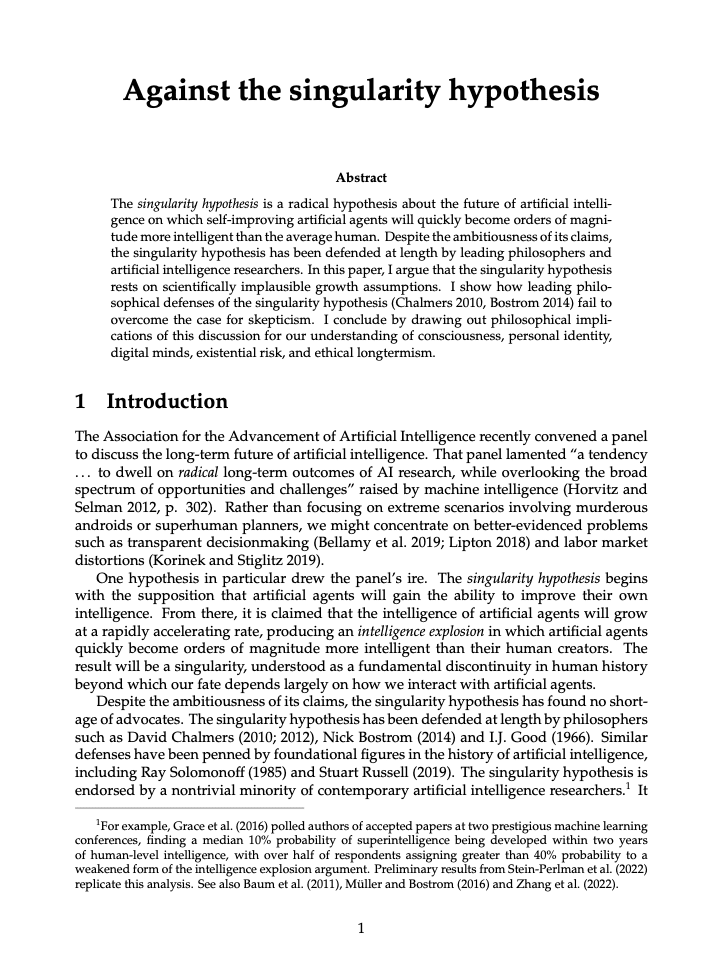Against the singularity hypothesis
David Thorstad (Global Priorities Institute, University of Oxford)
GPI Working Paper No. 19-2022; published in Philosophical Studies
The singularity hypothesis is a radical hypothesis about the future of artificial intelligence on which self-improving artificial agents will quickly become orders of magnitude more intelligent than the average human. Despite the ambitiousness of its claims, the singularity hypothesis has been defended at length by leading philosophers and artificial intelligence researchers. In this paper, I argue that the singularity hypothesis rests on scientifically implausible growth assumptions. I show how leading philosophical defenses of the singularity hypothesis (Chalmers 2010, Bostrom 2014) fail to overcome the case for skepticism. I conclude by drawing out philosophical implications of this discussion for our understanding of consciousness, personal identity, digital minds, existential risk, and ethical longtermism.
Other working papers
Concepts of existential catastrophe – Hilary Greaves (University of Oxford)
The notion of existential catastrophe is increasingly appealed to in discussion of risk management around emerging technologies, but it is not completely clear what this notion amounts to. Here, I provide an opinionated survey of the space of plausibly useful definitions of existential catastrophe. Inter alia, I discuss: whether to define existential catastrophe in ex post or ex ante terms, whether an ex ante definition should be in terms of loss of expected value or loss of potential…
Time discounting, consistency and special obligations: a defence of Robust Temporalism – Harry R. Lloyd (Yale University)
This paper defends the claim that mere temporal proximity always and without exception strengthens certain moral duties, including the duty to save – call this view Robust Temporalism. Although almost all other moral philosophers dismiss Robust Temporalism out of hand, I argue that it is prima facie intuitively plausible, and that it is analogous to a view about special obligations that many philosophers already accept…
Misjudgment Exacerbates Collective Action Problems – Joshua Lewis (New York University) et al.
In collective action problems, suboptimal collective outcomes arise from each individual optimizing their own wellbeing. Past work assumes individuals do this because they care more about themselves than others. Yet, other factors could also contribute. We examine the role of empirical beliefs. Our results suggest people underestimate individual impact on collective problems. When collective action seems worthwhile, individual action often does not, even if the expected ratio of costs to benefits is the same. …

